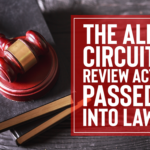One of the most common reasons that individuals feel dissuaded from bringing a whistleblowing claim – whether as a False Claims Act (FCA) claim related to Medicare/Medicaid fraud or government procurement, or an SEC, IRS, or CFTC whistleblower action – is because they are worried that their jobs will be in jeopardy and/or that they will be in violation of company policy. Which leads some people to believe that they need to quit their job before they can undertake pursuing a financial reward via a whistleblowing claim. While an employee is of course free to leave their job either before or after pursuing such a claim, there is no need to quit as a prerequisite in doing so, and there may be in fact a number of reasons to stay.
Anyone Can Bring a Whistleblower Action
Regardless of the type of whistleblower action you are bringing, there is no requirement that you either work or not work at the entity that is the subject of your whistleblower action. Employees, executives, ex-employees, competitors, industry observers, and even government employees have all collected whistleblower awards based on original information that they have brought to the federal government’s attention with the assistance of an attorney. That said, if you are yourself participating in the illegal behavior, you should speak with a whistleblower attorney about steps you may need to take to mitigate such action as part of your efforts.
Your Identity Is Kept Confidential in Bringing a Claim
When you work with an experienced whistleblower attorney to pursue your claim, your attorney will be in a confidential relationship with you and thus prohibited from sharing any information you provide unless you grant permission to do so.
Even as your attorney pursues a whistleblower reward on your behalf, both your identity and the information that you provide can remain confidential for the bulk of the process, even indefinitely in some cases. In fact, the SEC Whistleblower program – which has awarded over $156 million in its brief existence – releases no details regarding whistleblowers or where they worked.
You Are Protected Against Retaliation
In addition to protecting your identity, federal law protects you from retaliation at work for reporting instances of illegality to the government, meaning you cannot be fired, demoted, or otherwise be made subject to adverse employment decisions as a result of your actions to expose illegal conduct. And, if an employer does so, you may be entitled to obtain additional damages in an employment lawsuit above and beyond what you receive in a whistleblower award.
The Government May Ask You to Provide Additional Information From Work
Again, the decision to stay in your job during the process of bringing a whistleblower action is ultimately one that you get to make, but it is possible that the federal government may ask you for additional information and evidence related to wrongdoing to help prove the allegations that you raise. Doing so may be assisted by your presence on the job, and can lead to a larger recovery for both the government and for you. Again, speak to an experienced whistleblower attorney to receive guidance applicable to your specific situation.
Work with Experienced Whistleblowing Attorneys You Can Trust
At Kreindler & Associates, we understand that the decision to become a whistleblower is not an easy one. The government relies on courageous insiders like you to come forward with information that can stop fraud perpetrated against the U.S. government as well as violations of our nation’s securities and tax laws. Our experienced whistleblower attorneys will work with you every step of the way to determine your appropriate course of action, protect you from retaliation, and collect your much-deserved reward. If you suspect that you have original information useful to the federal government in a whistleblower action, contact us today for an evaluation of your allegations.




